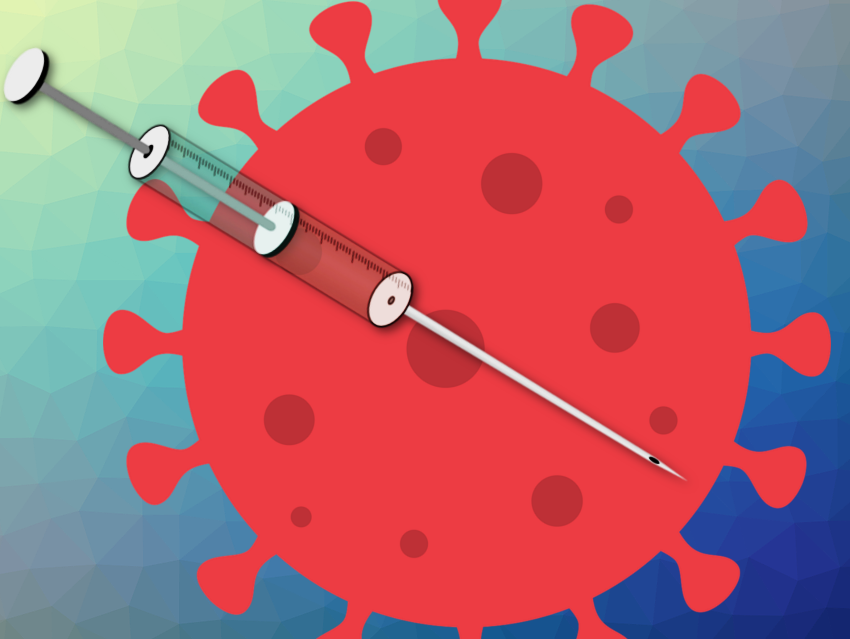Pfizer and BioNTech announced an agreement with the UK to supply 30 million doses of their BNT162 mRNA-based vaccine candidate against SARS-CoV-2. It is currently in development. The agreement is subject to clinical success and regulatory approval. Financial details were not disclosed.
The BNT162 program is based on BioNTech’s proprietary messenger RNA (mRNA) technology. It is supported by Pfizer’s global vaccine development and manufacturing capabilities. The BNT162 vaccine candidates are undergoing clinical studies and are not currently approved for distribution anywhere in the world. BioNTech is the market authorization holder worldwide and will hold all trademarks for the potential product. Both collaborators are committed to developing these novel vaccines with pre-clinical and clinical data at the forefront of all their decision-making.
The Pfizer/BioNTech vaccine development program is evaluating at least four experimental vaccines, each of which represents a unique combination of mRNA format and target antigen. On July 1, 2020, the companies announced preliminary data from BNT162b1, the most advanced of the four mRNA formulations. These demonstrate that BNT162b1 can produce neutralizing antibodies in humans at or above the levels observed in the plasma from patients who have recovered from COVID-19, and this was shown at relatively low dose levels. Local reactions and systemic events were dose-dependent, generally mild to moderate, and transient. No serious adverse events were reported.
Recently, two of the four vaccine candidates (BNT162b1 and BNT162b2) received Fast Track designation from the U.S. Food and Drug Administration (FDA). This designation was granted based on preliminary data from Phase 1/2 studies that are currently ongoing in the US and Germany as well as animal immunogenicity studies. Further data from the ongoing Phase 1/2 clinical trials of the four vaccine candidates will allow the selection of a lead candidate and dose level for an anticipated large, global Phase 2b/3 safety and efficacy study that may begin later this month, pending regulatory approval.
If the ongoing studies are successful, Pfizer and BioNTech expect to seek Conditional Marketing Authorization or some form of regulatory approval in October 2020. The companies currently expect to manufacture globally up to 100 million doses by the end of 2020 and potentially more than 1.3 billion doses by the end of 2021, subject to final dose selection from the clinical trial.
In addition to the engagements with governments, Pfizer and BioNTech have provided an expression of interest for possible supply to the COVAX Facility. This is a mechanism established by Gavi, the Vaccine Alliance, the Coalition for Epidemic Preparedness Innovations (CEPI), and World Health Organization (WHO) that aims to provide governments with early access to a large portfolio of COVID-19 candidate vaccines using a range of technology platforms, produced by multiple manufacturers across the world. Other candidates for vaccines that showed promising results from early trials in humans come from a partnership between Oxford University, UK, and the British-Swedish drug maker AstraZenec, and from the Chinese company CanSino Biologics.
UPDATE 22.7.2020 21:40
Pfizer and BioNTech today announced the signing of an agreement with the U.S. Department of Health and Human Services and the Department of Defense. Under the terms of the agreement, the U.S. Government will receive 100 million doses of BNT162, the vaccine candidate against COVID-19 jointly developed by Pfizer and BioNTech, after Pfizer has successfully manufactured and received approval or emergency marketing authorization from the U.S. Food and Drug Administration (FDA).
The U.S. government will pay the companies $1.95 billion upon receipt of the first 100 million doses, after the FDA has granted approval or authorization. The U.S. Government may also purchase up to 500 million additional doses. Americans will receive the vaccine for free, consistent with the U.S. government’s commitment to free access for COVID-19 vaccines.
- Pfizer Inc., New York, NY, USA
- BioNTech SE, Mainz, Germany
Also of Interest
- Collection: SARS-CoV-2 Virus
What we know about the new coronavirus and COVID-19 – articles published in ChemistryViews
- Safety and immunogenicity of the ChAdOx1 nCoV-19 vaccine against SARS-CoV-2: a preliminary report of a phase 1/2, single-blind, randomised controlled trial, Pedro M Folegatti, Katie J Ewer, Parvinder K Aley, Brian Angus, Stephan Becker, Sandra Belij-Rammerstorfer, Duncan Bellamy, Sagida Bibi, Mustapha Bittaye, Elizabeth A Clutterbuck, Christina Dold, Saul N Faust, Adam Finn, Amy L Flaxman, Bassam Hallis, Paul Heath, Daniel Jenkin, Rajeka Lazarus, Rebecca Makinson, Angela M Minassian, Katrina M Pollock, Maheshi Ramasamy, Hannah Robinson, Matthew Snape, Richard Tarrant, Merryn Voysey, Catherine Green, Alexander D Douglas, Adrian V S Hill, Teresa Lambe, Sarah C Gilbert, Andrew J Pollard, The Lancet 2020. https://doi.org/10.1016/S0140-6736(20)31604-4
- Immunogenicity and safety of a recombinant adenovirus type-5-vectored COVID-19 vaccine in healthy adults aged 18 years or older: a randomised, double-blind, placebo-controlled, phase 2 trial, Feng-Cai Zhu, Xu-Hua Guan, Yu-Hua Li, Jian-Ying Huang, Tao Jiang, Li-Hua Hou, Jing-Xin Li, Bei-Fang Yang, Ling Wang, Wen-Juan Wang, Shi-Po Wu, Zhao Wang, Xiao-Hong Wu, Jun-Jie Xu, Zhe Zhang, Si-Yue Jia, Bu-Sen Wang, Yi Hu, Jing-Jing Liu, Jun Zhang, Xiao-Ai Qian, Qiong Li, Hong-Xing Pan, Hu-Dachuan Jiang, Peng Deng, Jin-Bo Gou, Xue-Wen Wang, Xing-Huan Wang, Prof Wei Chen, The Lancet 2020. https://doi.org/10.1016/S0140-6736(20)31605-6
- Concurrent human antibody and TH1 type T-cell responses elicited by a COVID-19 RNA vaccine, Ugur Sahin, Alexander Muik, Evelyna Derhovanessian, Isabel Vogler, Lena M Kranz, Mathias Vormehr, Alina Baum, Kristen Pascal, Jasmin Quandt, Daniel Maurus, Sebastian Brachtendorf, Verena L Loerks, Julian Sikorski, Rolf Hilker, Dirk Becker, Ann-Kathrin Eller, Jan Gruetzner, Carsten Boesler, Corinna Rosenbaum, Marie-Cristine Kuehnle, Ulrich Luxemburger, Alexandra Kemmer-Brueck, David Langer, Martin Bexon, Stefanie Bolte, Katalin Kariko, Tania Palanche, Boris Fischer, Armin Schultz, Pei-Yong Shi, Camila Fontes-Garfias, John L Perez, Kena A Swanson, Jakob Loschko, Ingrid L Scully, Mark Cutler, Warren Kalina, Christos A Kyratsous, David Cooper, Philip R Dormitzer, Kathrin U Jansen, Oezlem Tuereci, medRxiv 2020. https://doi.org/10.1101/2020.07.17.20140533




